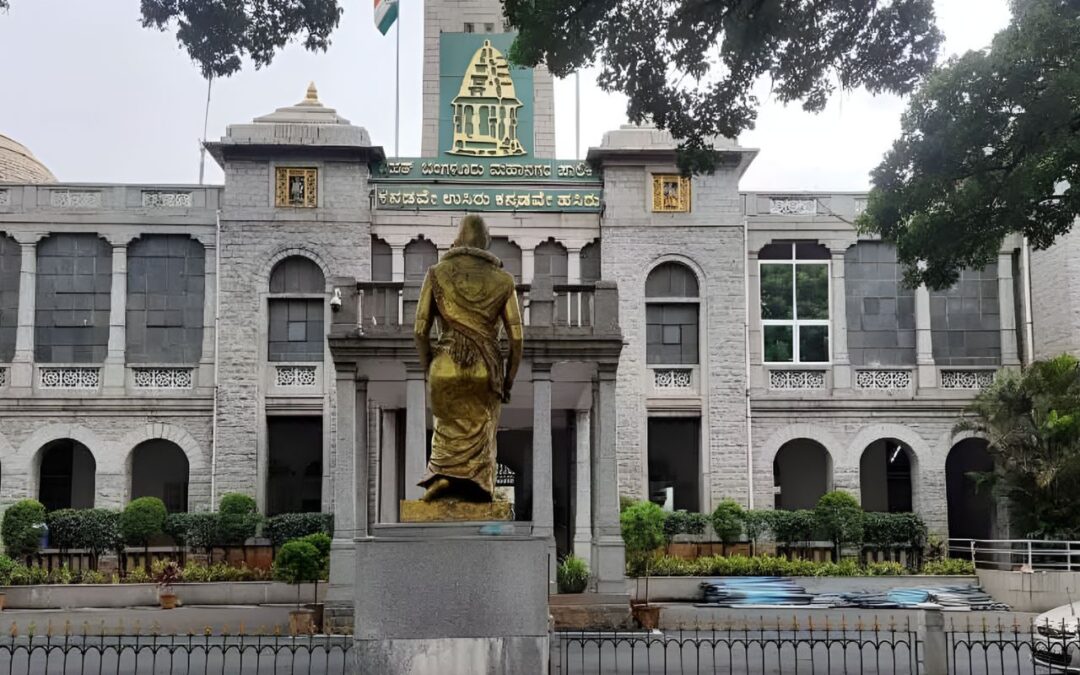Synopsis– Bengaluru Real Estate is going through a major transformation with the latest regime of making e-Khata mandatory from July 1st, 2025. This system aims to embed transparency, digitization, and tax accountability. The mandate has become a gateway for building plan approvals, tax payments, and legal transactions.
Urban real estate landscape in Bengaluru has entered a new era, with the digital e-Khata regime becoming mandatory for all BBMP (Bruhat Bengaluru Mahanagara Palike) properties from July 1, 2025. This online property-record framework replaces the old paper Khata, bringing necessary transparency and tightening tax compliance. It now serves as a gateway for building plan approvals, tax payments, and legal transactions.
Firstly, What is e-Khata?
- An e-Khata is a formal digital property document used in Bengaluru that captures details about the property ownership, property dimensions, boundaries of the property, and details of taxes. It has replaced- Khata, which used to come in written form and is issued by Bruhat Bengaluru Mahanagara Palike or BBMP, the civic authority.
- An e-Khata acts as a verifiable proof of ownership of property before the government and administrators or officers, and is essential to pay property taxes, to apply for approvals for building construction, or for selling your property. An e-Khata contains a unique Property Identification Number (PID) so that there is transparency and traceability in reports and payments.
- The e-Khata is part of a government-led initiative by BBMP to digitize records and eradicate property fraud. e-Khata serves to eliminate construction that is illegal, unplanned and to ensure property owners are paying taxes in accordance with property valuation.
- Recently, BBMP has mandated that an e-Khata must be procured for all properties coming under BBMP’s jurisdiction (Starting July 1, 2025). Digital Khatas have been issued for over 5.3 lakh e-Khatas to properties, and tax audits have revealed massive underreporting. This new property e-Khata system does improve the flow of information and transparency, it still has problems such as long delays in the server and a backlog for newly developed and named BBMP zones. This has caused several developments to take place around the new regime, so let’s dive into each of them one by one.
- Mass rollout and obligatory compliance
- More than 5.3 lakh properties have already been issued final e-Khatas, while more than 5.5 finalised. The goal is to cover 25 lakh within the BBMP area
- From July 2025, an e-Khata or EPID (Electronic Property Identification) is mandatory for all online submissions of building plans
- Tax evasion uncovered
- Audits have uncovered large-scale under-reporting of built-up space and mis-declaration of commercial properties as residential. Almost 5 lakh properties were found to be involved
- The BBMP has already recovered around Rs. 500 crores and is expected to recover another Rs. 500-1,000 crores through continuing processes.
- Technical glitches and lags
- Server delays and authentication roadblocks persist, resulting in e-Khata issuance delays. 20,000 new Khatas applications are still pending, while over 5 lakh of them have already been generated and downloaded.
- Backlog and enhanced coverage issues
- Close to 20,000 applications are pending because BBMP employees were redeployed for other responsibilities.
- New BBMP zones are missing files, and residents who don’t have a Khata but pay taxes now have to reapply.
- Commercial tension
- Though e-Khata has managed to reduce fraud, it has also resulted in tax notices and audit pressure-penalizing some property owners, who are not ready for reassessment.
Also read: Karnataka’s ₹2,000 Crore Highway Projects: Know the Impact on Property Prices Along These Routes
Wider Impact on Bengaluru’s Real Estate
- Revenue maximization: BBMP has already yielded Rs. 2,966 crore in FY2025-26 and hopes to touch Rs. 6,256 crore. The e-Khata audit is expected to add Rs. 1,000 crore to this.
- Market formalization: e-Khata digital IDs and compulsory linkage aims to minimize compliance default, render properties more traceable, and should increase long-term market value.
- Increased A-Khata/B-Khata dialogue: The government is considering bringing B-Khata properties registered before September 2024 into A-Khata status, releasing mortgages, and formal transferability.
Challenges and Concerns
- Issuance backlog: Technical glitches and manpower shortages result in numerous properties, particularly newer BBMP areas, not being registered.
- Tax shock for owners: Increased scrutiny might preferentially hit small investors with lenient compliance.
- Infrastructure readiness: Most BBMP systems (server deployment, portal support, application tracking) cannot still meet the recent spurt.
- Disparity in implementation: Inconsistency in wards on awareness, MELAs, and portal reach.
Conclusion
Bengaluru’s e-Khata system represents a huge overhaul in property governance-inked to transparency, digitization, and tax responsibility. It has unearthed crores of hidden liabilities, sealed revenue losses, and compromised legitimacy in the market. Yet its success depends on clearing technical backlogs, enforcing equity, and providing streamlined digital services.
If BBMP can iron out the bugs and speed up issuance, e-Khata could go a long way towards formalizing Bengaluru’s real estate, for much more investor confidence, smooth transactions, and a strong civic finance foundation. The current stage is pivotal: a trial of whether digital enforcement can maintain efficiency without punishing honest homeowners.
Written by Adithya Menon


